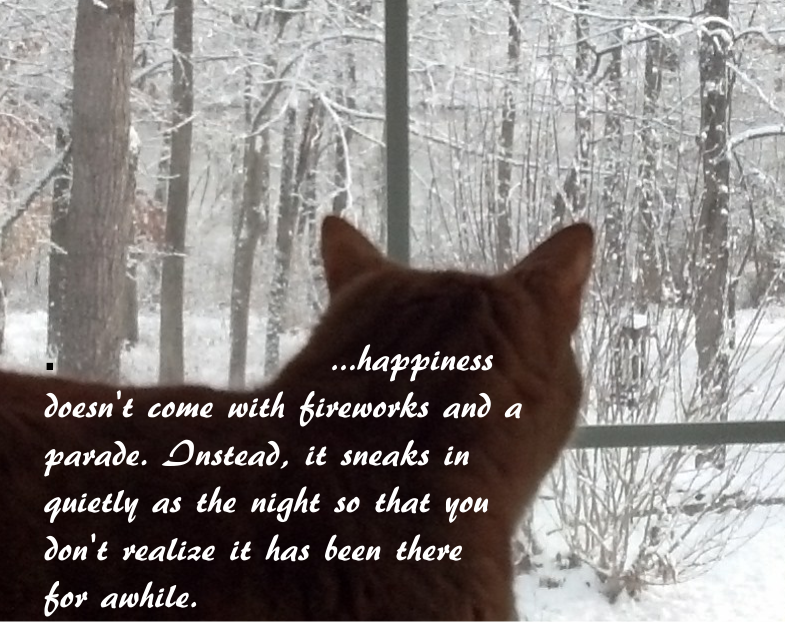










Popular Articles
Crazy-Makers: Dealing with Passive-Aggressive People
Why Are People Mean? Don't Take It Personally!
Struggling to Forgive: An Inability to Grieve
The Secret of Happiness: Let It Find You (But Make the Effort)
20 Steps to Better Self-Esteem
7 Rules and 8 Methods for Responding to Passive-aggressive People
What to Do When Your Jealousy Threatens to Destroy Your Marriage
Guide to How to Set Achieveable Goals
Catastrophe? Or Inconvenience?
Popular Audios
Audio Version of Article: Crazy-Makers: Passive-Aggressive People
Audio Version of Article: Why Are People Mean? Don't Take It Personally!
Happiness
The Secret of Happiness: Let It Find You (But Make the Effort)

 The first and most important key to finding happiness may be the most difficult for many people (especially those reading this article): To find happiness you must not seek it! In other words, the more you try to find happiness, the more it will elude you. I think Nathaniel Hawthorne (1804-1864) said it best, “Happiness is a butterfly, which when pursued, is always just beyond your grasp, but which, if you will sit down quietly, may alight upon you.”
The first and most important key to finding happiness may be the most difficult for many people (especially those reading this article): To find happiness you must not seek it! In other words, the more you try to find happiness, the more it will elude you. I think Nathaniel Hawthorne (1804-1864) said it best, “Happiness is a butterfly, which when pursued, is always just beyond your grasp, but which, if you will sit down quietly, may alight upon you.”
However, don't be discouraged. You can do many things to create a life where happiness is more likely to find you. Yet, the same caveat applies: If you do everything for the purpose of finding happiness, you may achieve much, but you are not likely to find happiness. Researcher Mauss and colleagues (2012) who found that the higher the value a person places on being happy, the more likely they are to be unhappy, stated, “encouraging a mindset to maximize happiness (as some “self-help” books do) may be counterproductive.”
The reason happiness becomes elusive the more you strive for it is due to creating a fixed desire of achieving happiness. Read more...
Happy Habits: 50 Suggestions--page 1

SUGGESTION 1: USING THE SUGGESTIONS
The following is a list of 50 suggestions to help you focus on using the cognitive-behavioral therapy(CBT) methods to create the conditions for happiness, a frequently elusive but fairly simple feat when happiness is truly understood.Happiness is not something you achieve. In fact, the more you try to find happiness, the less likely you will be happy. Happiness occurs by how you live your life. Certain lifestyle practices have been shown to be associated with increased happiness. It may be difficult initially to incorporate the lifestyle practices into your daily routine, but the more you do so, the more opportunity you create for happiness to find you.
For those of you with Android devices, the Excel At Life's Happy Habits can assist you with developing the lifestyle practices. However, those without an Android device can still use these same methods. All the audios are included on this website and the assessment will be as well.
The following list of suggestions are things you can do to help you learn to develop these lifestyle practices as well as to identify obstacles to your happiness and provide you with tools to address those obstacles. Some of the suggestions are simpler and some are more involved.
It is better to start with something simple that you feel fairly certain you can achieve. That way you are less likely to feel discouraged. Not all the suggestions are relevant for all people. So, review the list, read the detailed descriptions, and choose what is most likely to work for you. Read more...
PsychNotes

 For many years when my husband and I were first together I would ask him
"When are things going to get better?" We were dealing with the
usual stressors that couples face: not enough time, not enough money,
and the inevitable random events such as family conflict, deaths of
loved ones, illnesses and injuries. In addition, for most of our
early years together I was in school and struggling with the balancing
of demands of advanced education, part-time work, and a family.
But I had the belief that we were working towards this perfect life that one
day would emerge shining a rainbow of happiness forever over us. My
husband, inclined more toward the practical, just answered my question
of "When are things going to get better?," with "Another six months."
That answer typically pacified me for awhile because I thought I could
handle any amount of stress for six months. However, a point would
occur when I once again I asked my husband "When are things going to get
better?" Once again, he would answer "Another six months."
This scenario occurred fairly routinely for many years.
For many years when my husband and I were first together I would ask him
"When are things going to get better?" We were dealing with the
usual stressors that couples face: not enough time, not enough money,
and the inevitable random events such as family conflict, deaths of
loved ones, illnesses and injuries. In addition, for most of our
early years together I was in school and struggling with the balancing
of demands of advanced education, part-time work, and a family.
But I had the belief that we were working towards this perfect life that one
day would emerge shining a rainbow of happiness forever over us. My
husband, inclined more toward the practical, just answered my question
of "When are things going to get better?," with "Another six months."
That answer typically pacified me for awhile because I thought I could
handle any amount of stress for six months. However, a point would
occur when I once again I asked my husband "When are things going to get
better?" Once again, he would answer "Another six months."
This scenario occurred fairly routinely for many years.However, fortunately during this time I had experiences that began to teach me about my expectations of life. In particular, when I was completing my internship at the Veterans Administration Medical Center I had the opportunity to work on the spinal cord injury unit. That experience forever changed my thinking. In particular, I was struck by the differences in attitude among the patients. Read more...

 One day when I was seven–years–old my father allowed me to choose our Sunday family activity. He said
we could either take a drive across the Mississippi River or ride on the last streetcar in St. Louis.
At that time of my life I had never seen an ocean or even a great lake and I was awed by the vastness
of the Mississippi River. It never occurred to me that the river would always be there and the streetcars
might not. I chose the river. Of course, driving across the river took all of fifteen seconds.
Immediately after we crossed the bridge I regretted my decision. My regret at the time was that
the streetcar excursion would have been lengthier. My regret later was that I never again had the
opportunity to ride a streetcar in St. Louis.
One day when I was seven–years–old my father allowed me to choose our Sunday family activity. He said
we could either take a drive across the Mississippi River or ride on the last streetcar in St. Louis.
At that time of my life I had never seen an ocean or even a great lake and I was awed by the vastness
of the Mississippi River. It never occurred to me that the river would always be there and the streetcars
might not. I chose the river. Of course, driving across the river took all of fifteen seconds.
Immediately after we crossed the bridge I regretted my decision. My regret at the time was that
the streetcar excursion would have been lengthier. My regret later was that I never again had the
opportunity to ride a streetcar in St. Louis.My father could have protected me from my regret and sadness. He could have taken me on a streetcar anyway or have convinced me that I had made the wrong decision. However, he allowed the decision to stand and allowed me to deal with the consequential emotions. I don't know what he intended, but I do believe that he was trying to be a good father that day. Read more...

 Listening
to the weather forecast one frigid day, I realized how much we are
influenced by the catastrophic thinking of the media. The
weatherman reported, "The weather has brought more misery to the St. Louis area."
Certainly, the weather was causing problems that day. An ice storm caused
car doors and locks to be frozen so that people had a great deal of trouble
getting into their cars. However, I thought, unless someone was in the
middle of nowhere with no cell phone and they were unable to open their car door
because of the ice, this was not "misery." Instead, I would call it an
"inconvenience." Most of us walked out to our cars to find that we
couldn't open the door, went back inside a warm house or office, and found some
solution to our problem. Read more...
Listening
to the weather forecast one frigid day, I realized how much we are
influenced by the catastrophic thinking of the media. The
weatherman reported, "The weather has brought more misery to the St. Louis area."
Certainly, the weather was causing problems that day. An ice storm caused
car doors and locks to be frozen so that people had a great deal of trouble
getting into their cars. However, I thought, unless someone was in the
middle of nowhere with no cell phone and they were unable to open their car door
because of the ice, this was not "misery." Instead, I would call it an
"inconvenience." Most of us walked out to our cars to find that we
couldn't open the door, went back inside a warm house or office, and found some
solution to our problem. Read more...

 A serious problem exists with the public's understanding of depression. The problem occurs because of the clinical term "Major Depression" and the general use of the word "depression." One of the definitions in the Merriam-Webster dictionary indicates that depression is "a state of feeling sad." Therefore, the general public typically defines "depression" interchangeably with "sadness" as in "I'm so depressed today." The tendency, then, is to assume that clinical depression is just extreme sadness or the inability to handle normal stress and sadness of life.
A serious problem exists with the public's understanding of depression. The problem occurs because of the clinical term "Major Depression" and the general use of the word "depression." One of the definitions in the Merriam-Webster dictionary indicates that depression is "a state of feeling sad." Therefore, the general public typically defines "depression" interchangeably with "sadness" as in "I'm so depressed today." The tendency, then, is to assume that clinical depression is just extreme sadness or the inability to handle normal stress and sadness of life.
This assumption is not only wrong but it is a disservice to all individuals who experience one of the clinical forms of depression: Major Depressive Disorder, Dysthymic Disorder, Depression NOS (Not Otherwise Specified), or Adjustment Disorder with Depression. Read more...












